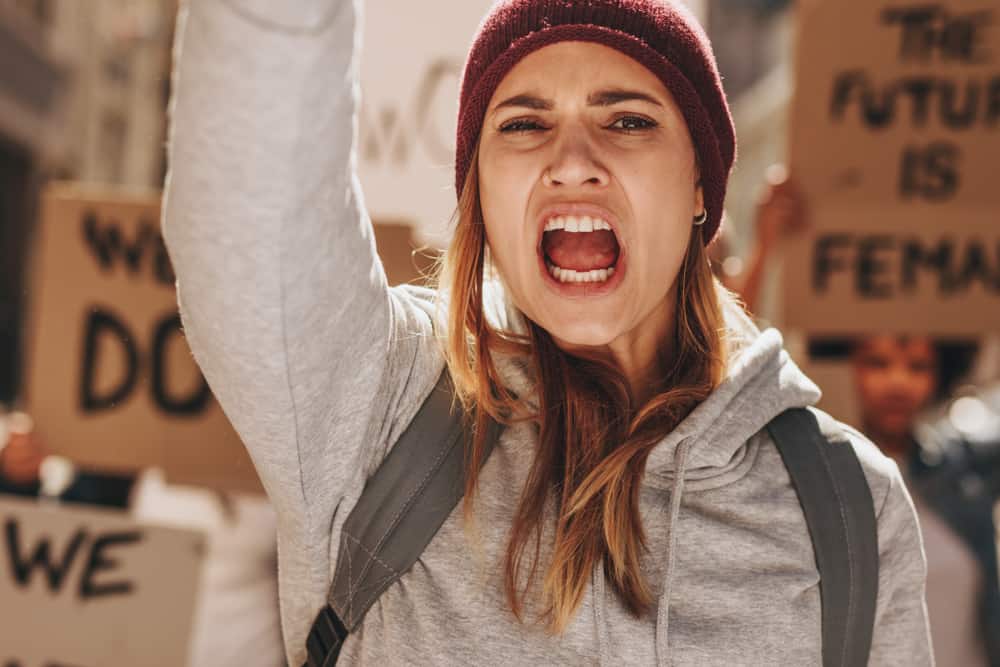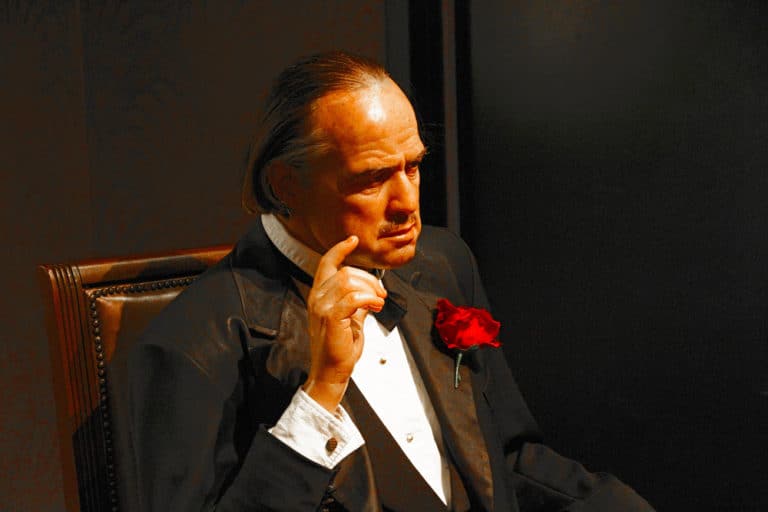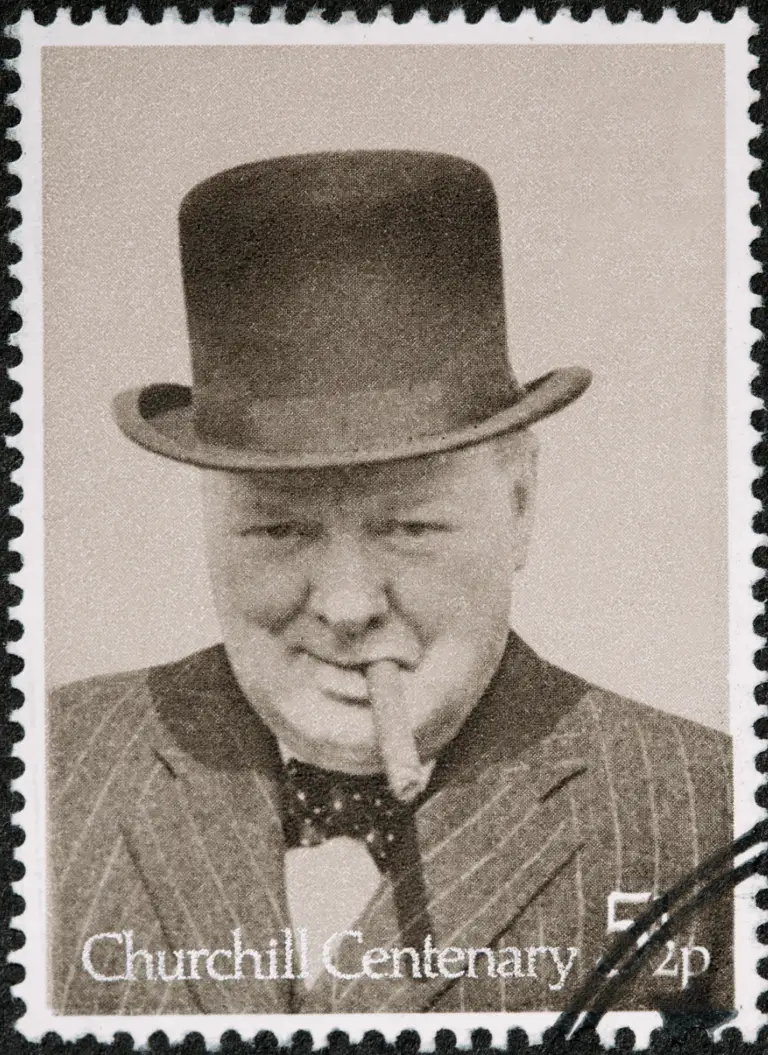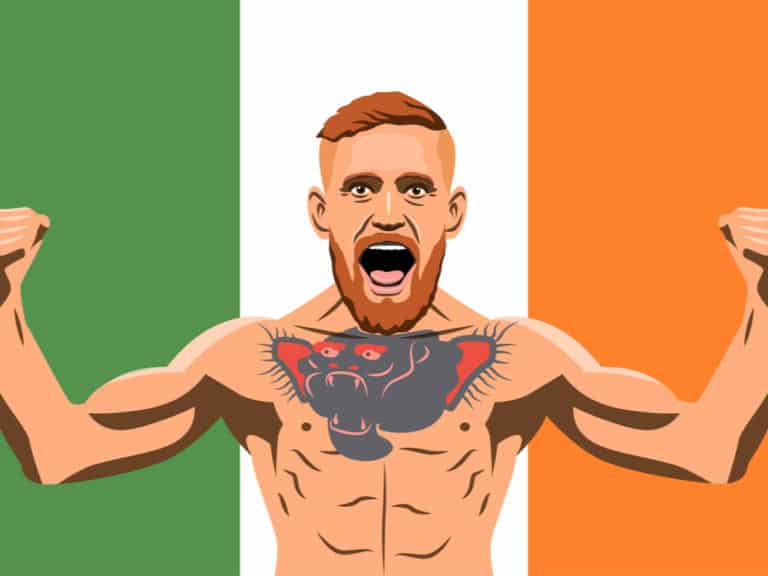9 people who stood up for what they believed in!
We’ve all been moved by the state of the world at times. Suffering is one of life’s basic truths, and this suffering can be amplified by oppressive systems and unjust people.
It takes an incredible amount of bravery to stand up against such opposition, and yet some people manage to do so persistently and effectively. People like this are a sight to behold.
The aim of this article is to explore the lives of 9 courageous people who took a serious risk and stood up for what they believed in. We hope it inspires you to live a more forthright and bold life.
9 people who stood up for what they believed in
1) EMMA GOLDMAN
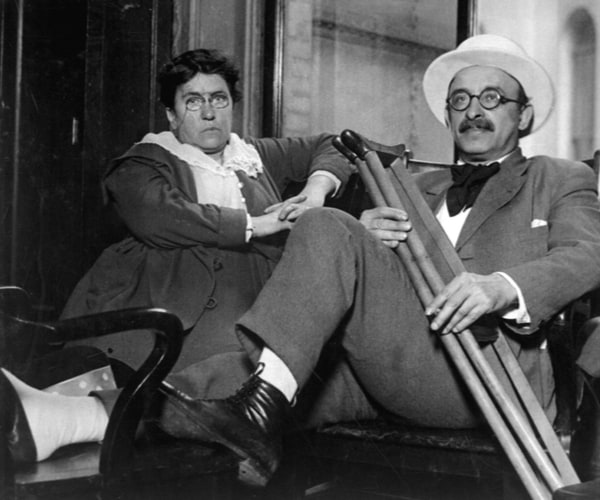
Emma Goldman was a Russian-born American anarchist and feminist activist. She played a pivotal role in the international labour movement and the struggle for women’s rights. She worked tirelessly for women’s rights, access to birth control and abortion, free love, workers’ rights, and social justice.
She fought fiercely for causes that were then unpopular with the public. Her book “Anarchism: What It Really Stands For” is still worth reading for anyone interested in anarchism. Goldman was also a staunch opponent of fascism and militarism, so she supported striking labourers during World War I. She recognized early on how fascism would grow powerful by combining repression at home with aggression abroad — a lesson we would do well to remember.
Further, her legacy continues to live on in modern media. She has appeared in films such as “The Battle of Chicago,” “The Love Club,” and “Russian Revolution,” as well as on TV shows including “America ReFramed: The Untold Story of Emma Goldman.”
She helped fight for women’s rights and social justice movements during her time. Here are some of the ways in which this great woman stood up for what she believed in.
She was a champion for the poor
Goldman was the first person to use “education for liberation” to describe that education is the key to social change. Her other ideas were equally revolutionary, like her belief that the right to have an abortion was a human right, just like the right to work or free speech. She was also a strong proponent of free love, coining the phrase “free love” in her book “Red Emma Speaks.” Her ideas around sexual relations are now shared by the majority of society but were highly controversial in the ’30s.
She was a woman with a passion for social justice
She believed education and political action were the keys to change. In her speeches, she would often emphasize that every woman must develop and use every resource at their disposal to become more powerful and influential. That was more likely due to her background as a poor immigrant Jew in 19th century America, with no access to higher education or stable employment. However, her experience made her a strong believer in the power of education and political action.
Goldman was jailed many times for attacking the institution of marriage and family. She also suggested that prostitution should be legalized because any woman or man who claimed to have never fallen on hard times and had no avenue for money except through prostitution would be lying through their teeth. This idea is still radical today, considering many radical feminists view prostitution as inherently degrading to women.
Regardless of your take on Goldman’s views, you have to respect the way in which she stood for what she believed was right.
Read also: 7 people who showed moral courage throughout history!
2) ELIZABETH CADY STANTON
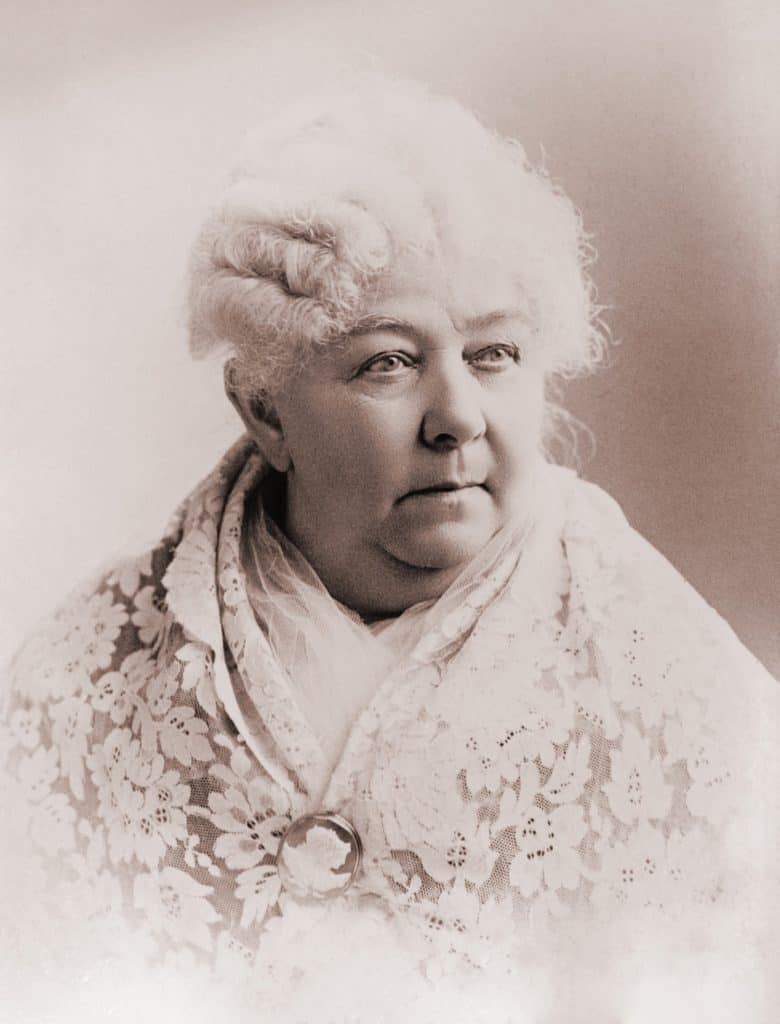
If ever there was a woman who paved the way for today’s feminists, it’s Elizabeth Cady Stanton. Stanton was an activist extraordinaire, from winning voting rights to campaigning for women’s suffrage. Her work helped forge women in the United States to make strides towards equality, even if she doesn’t always get credit where she deserves it. Here are the achievements of Elizabeth Cady Stanton that will change your understanding of her legacy forever.
In 1851, she helped organize the world’s first women’s rights convention in Seneca Falls.
In 1868, together with Susan B. Anthony and others, she persuaded the New York State legislature to pass a law giving married women control of their children. In 1870, she organized a petition drive that led Congress to establish a woman’s Bureau headed by Richard P. Bland and Julia Ward Howe for gathering information on social injustices against women and children in need of relief, especially widows with dependent children.
In 1890 Stanton published “The Woman’s Bible,” a theoretically feminist commentary on the bible that provides evidence from scripture passages to support her arguments for gender equality in religious observance and interpretation of biblical texts. The commentary is an example of Stanton’s interest in the intersection of religion and feminism.
Stanton was opposed to the Woman Suffrage movement, believing it would subvert women’s proper role as wives, mothers, and homemakers. She believed that enfranchising women would undermine their moral and political character. She writes: “Let them vote but let us try first to make them good wives and mothers.”
In an 1896 speech to the National Woman Suffrage Association (WSA) convention, she said: “I have not voted myself; it is a mistake to ask women to vote while we continue to ask them to be good wives, mothers, and workers … I believe in woman suffrage. But I do not believe in it as I believe in higher education, free libraries, free schools, and the solution to the labour problem. My interest is from another point of view.”
Under Stanton’s leadership, NAWSA became one of the most powerful organizations of its time, and it helped make great progress towards women’s suffrage in the United States.
Check out this short video on the life of Elizabeth Cady Stanton:
3) MALALA YOUSAFZAI
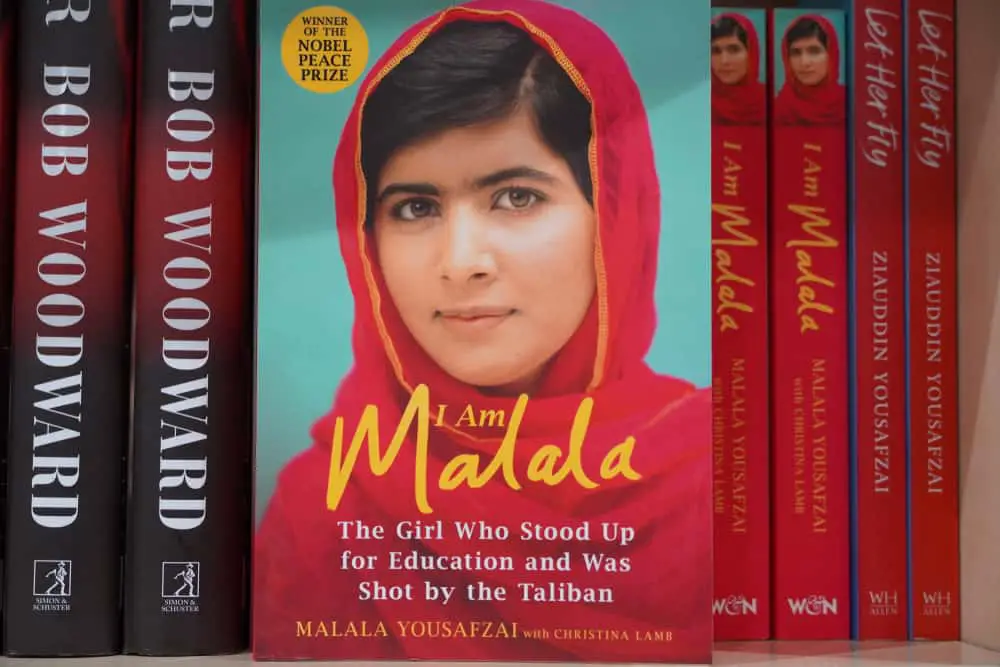
Malala Yousafzai is a young woman born in 1997 in the Swat Valley of northwest Pakistan. In 1997, the Taliban seized control of the Swat Valley from Pakistani forces. Education was not available to girls under their rule, and Malala spoke out publicly about her desires for girls’ education rights. On October 9, 2012, she survived an assassination attempt by the Taliban when they boarded her school bus and fired shots at her head. Her receiving medical treatment in Birmingham has been met with a global outpouring of sympathy and support, including a statement from Pakistani Prime Minister Nawaz Sharif. Malala has received many accolades and awards. She is a recipient of the International Children’s Peace Prize, the European Women’s Rights Award, The Sakharov Prize for Freedom of Thought, and received a nomination for the 2014 Nobel Peace Prize.
During her high school education, she started to blog under the name “Mosharraf Zaidi,” which was changed to “Commander Tazia.” Malala’s blog covers society, politics, education, and human rights issues.
In 2014 Malala Yousafzai was awarded the European Parliament’s Sakharov Prize for Freedom of Thought and Human Rights. The award was presented to Malala by activist Peter Greste to recognize “peaceful activism in pursuit of freedom” in honour of her advocacy for girls’ education.
Malala was also presented with the Gandhi Peace Award by the Indian state government for her advocacy efforts. She received the HeforShe award from UN Women for her advocacy for women’s rights in Afghanistan and Pakistan. She has also been recognized as a United Nations Messenger of Peace from China.
In 2014 Malala was announced as the co-recipient of the 2014 Nobel Peace Prize with Kailash Satyarthi due to their struggle against the suppression of children, youths, and all children’s right to education. She was the youngest person to win a Nobel Prize and its second-youngest winner ever.
Read also: 12 characteristics of a virtuous person!
4) THE DALAI LAMA

He is a spiritual and temporal leader of Tibet and the Tibetan people and a Nobel Peace Prize laureate (1989). He was born Lhamo Dönyi in 1935, widely considered one of the most influential religious figures alive today. His messages of peace, non-violence, kindness, and compassion for all living things have led millions worldwide to look towards him for guidance. Here are five major achievements demonstrating how much The Dalai Lama has done for his people.
The Dalai Lama began actively protesting against China’s occupation of Tibet in 1959 when he was just 12 years old. He was detained in Lhasa from 1959 until he was smuggled out of Tibet following the failed uprising of March 10, 1959. The Dalai Lama and his followers continued to protest against China’s occupation of Tibet until it was announced that he had won the Nobel Peace Prize in 1989.
After many years of avoiding the question, it wasn’t until 2002 that The Dalai Lama announced that he did not seek separation of Tibet from China, but instead a “meaningful autonomy” within China. If granted autonomy and protection for Tibetan culture and religion, The Dalai Lama states no problems. However, if this is not granted, there will be serious problems.
After the 2009 protests in Tibet, The Dalai Lama went to Beijing to try and negotiate a solution to some of the issues raised by the Tibetan people, which left dozens dead. The Dalai Lama was accused of splitting China and bringing back the exiled spiritual leader of Tibet, the Panchen Lama. China blocked his return to Tibet, so he held a ceremony in honour of the 60th anniversary of Tibet’s peaceful uprising against Chinese rule.
Of all the people one could stand up against, the Chinese government is up there with the most formidable. This man has shown unwavering commitment to standing up for the people of Tibet.
5) MARTIN LUTHER KING JR.

He was a man of great achievement and intelligence who fought for the rights of African Americans in America. He is also one of the most influential figures in American history and a man who has become known as “the father of civil rights.”
Known as the “man on horseback,” King made his mark on American history with an important speech called “I Have A Dream.” While achieving success for what he believed in, Dr Martin Luther King Jr. came to be hated by many Americans because he was too far to the left and criticized their racist stances on certain issues. Here is a list of the major achievements of Martin Luther King Jr.
HE ACHIEVED THE CIVIL RIGHTS ACT OF 1964
As one of the most highly influential people to ever walk the halls of Congress, Martin Luther King Jr. achieved many things for his people. One of his greatest accomplishments was when civil rights and labour activists were brought before the House Judiciary Committee to discuss inequalities in hiring practices in 1964. King spoke up about unions, freedom from discrimination, and how there should be equal employment opportunities for all Americans regardless of race and gender. Motivated by King’s speech, President Lyndon B. Johnson signed The Civil Rights Act into law only a few months later, prohibiting employers’ discrimination based on sex and race.
HE CAMPAIGNED FOR BETTER HOUSING FOR AFRICAN-AMERICANS
King worked for fair housing and equal opportunity in the home buying process. He led a march from Selma to Montgomery to protest how black people were discriminated against when purchasing or renting houses. His efforts ultimately led to the passing of the Civil Rights Act of 1968, which enforced anti-discrimination laws in real estate transactions and provided federal funds to local agencies to aid African Americans with fair housing options.
HE ADVOCATED NON-VIOLENCE
A great achievement made by King was when he advocated non-violence both during protests and in everyday life. When demonstrating, he encouraged people to keep their opinions to themselves, exercise self-control and not let anger control them. King referenced his philosophy of non-violence while standing in front of protesters on a violent bus towards African Americans civil rights leaders outside of Montgomery, Alabama. He told the people, “We will never be satisfied as long as the Negro is the victim of the unspeakable horrors of police brutality.” By preaching for non-violence, King inspired other activists to be peaceful and keep their actions within the boundaries set by law officials.
6) MOHANDAS KARAMCHAND GANDHI
Mohandas Karamchand Gandhi was one of the main leaders of the Indian independence movement and helped to free India from British rule. He believed in peaceful civil disobedience non-violence and became a key figure in post-war history, impacting the world. He helped lay the foundation for many modern-day nations and remained an inspirational character from whom we can all learn something. Here are the major achievements of Mohandas Karamchand Gandhi.
HE EMBRACED NON-VIOLENCE
Gandhi is known for his extreme commitment to non-violence. He famously said that “an eye for an eye leaves the whole world blind.” He gained worldwide fame due to his practice of non-violence during the civil disobedience movement against British rule in India. Not only did he rely on this principle in his quest for freedom, but he also became heavily involved in using non-violence to fight injustice right here at home. Gandhi’s commitment to non-violence resulted in the formation of the organization known as the “Gandhi Peace Foundation,” which promotes non-violence through education and training.
HE DEVELOPED ECONOMIC THEORY
In addition to fighting against injustice, Gandhi also developed economics and living conditions theories. He was a huge proponent of living as simply as possible for the sake of simplicity and sustainability. Gandhi was a firm believer that resources should be preserved by using reusable and reparable things rather than wasteful. He even used his fame to encourage people to protect the environment through solar power and the invention of the spinning wheel.
In addition to advocating for non-violence, Gandhi’s ideas on personal freedom and education were at the root of modern economics. His philosophy was that “the pursuit of wealth was not the ultimate purpose for human existence.” In other words, he argued that poverty itself was a form of violence against oneself and others.
HE ADVOCATED FOR EQUAL RIGHTS
Gandhi was instrumental in implementing equal rights for all individuals, including women. Apart from championing women’s rights to vote, he also campaigned against dowry and child marriage in India. He argued that all men had a duty to treat women equally, regardless of marital status. He famously encouraged husbands to “see that your wife wants for nothing.”
Gandhi was also known for encouraging vegetarianism and non-violence, believing that animals should be respected and treated equally. He was also an avid supporter of animal rights, refusing to kill any injured or sick animal.
Gandhi fought for the rights of children and the disabled. He believed that all people should be given equal opportunities, regardless of their gender or handicap. Gandhi also advocated for women’s rights in India – giving them voting rights, property rights, and more.
HE FOUGHT RACISM
Gandhi led the fight against racism and racial inequality across India and other countries. He famously said, “The colour of a man’s skin is no measure of his worth. I come from an old country. We were not black, but we were not white.”
However, he developed this belief at a young age. He was born and raised in India, home to several South Asian Indians. Gandhi came from an impoverished family, and his mother would have to sell the milk from her breast to get by. He was suspended from school for refusing to speak English, and before he turned 20, he was a full-fledged activist against British rule in India.
Gandhi’s fight against racism led him to become the president of the Indian National Congress in 1908. He was also responsible for enrolling his group of “home guards” – men who would defend their villages from Buckingham Palace to Kolkata from British attacks– into the army.
7) ELLA BAKER
Ella Baker is one of the most influential civil rights activists who never received her due. Her grandmother raised her in rural North Carolina, where she faced many difficulties as a child, including being sexually assaulted by an uncle.
These childhood experiences drove Baker’s activism later in life; she became an outspoken advocate for women and African Americans. She taught illiterate people how to read and write, helped disadvantaged students attend college (without telling their parents), supported Martin Luther King Jr. in his work, and worked with numerous civil rights organizations. Ella Baker managed to achieve the following:
SHE FOUNDED THE STUDENT NONVIOLENT COORDINATING COMMITTEE (SNCC)
Baker co-founded the Student Nonviolent Coordinating Committee (SNCC) with activist Howard Zinn. She believed it was important to focus on grassroots organizing, so she created SNCC’s “Bigger Than A Hamburger” campaign. The campaign encouraged traditional African American churches to donate money and resources to fund local activists to fight for social justice. The program was a success, and Baker used the money to support voter registration campaigns in Mississippi.
SHE OPPOSED THE VIETNAM WAR
In 1967, Baker joined with other activists and organized a protest against United States involvement in the Vietnam War. She and other representatives met with President Lyndon B. Johnson to urge him to withdraw from the war. However, Johnson refused to do so, and Baker was one of only a few people who spoke out against him in public.
SHE LED THE FREEDOM SUMMER
In 1964, Baker traveled to Mississippi with other civil rights activists to register black voters. The group helped register more than 5,000 African Americans for voting purposes. Despite not being a trained organizer, Baker’s groundbreaking approach to grassroots activism led SNCC and others to adopt her methods. In 1966, she was chosen as one of the first two recipients of the Presidential Medal of Freedom.
She HELPED LEAD A SUCCESSFUL CAMPAIGN AGAINST RACIAL SEGREGATION
Baker worked closely with Martin Luther King Jr. and his Southern Christian Leadership Conference (SCLC) during the Civil Rights movement. She believed it was important to target issues that would best help African Americans. When the Selma Voting Rights March took place in 1965, Baker protested against segregation, which was against the law in Alabama at the time.
Click here to learn more about the black freedom movement!
8) ABRAHAM LINCOLN
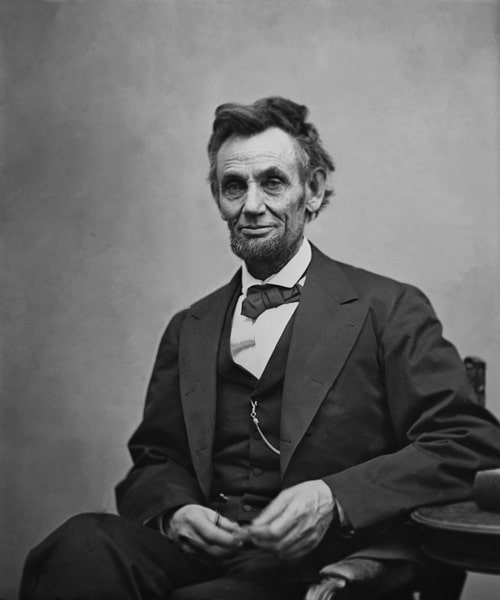
Few presidents in the US have accomplished more than Abraham Lincoln. During the Civil War, he preserved the Union, abolished slavery, and got America back on its feet economically after many years of economic stagnation. These are just a few of his major accomplishments.
Lincoln, who was in the midst of a losing battle for re-election and was busy shoring up support for his presidential bid, made exceptional efforts to conclude the Civil War quickly and as peacefully as possible. He implemented measures that helped speed up negotiations between the South and North. For example, Lincoln urged both sides to make concessions that would encourage peace negotiations faster by offering incentives such as restoring confiscated lands to formerly enslaved people, among other proposals. He helped speed up negotiations between the North and South by supporting reasonable concessions from all sides. Meanwhile, Lincoln maintained a strong relationship with Confederate General Joseph Johnston, who ultimately surrendered his troops to Ulysses S. Grant in April 1865.
Lincoln issued his Emancipation Proclamation in January 1863, marking a historic step in the struggle against slavery. The proclamation stated that all enslaved people would be freed, and it went into effect on January 1, 1863. It also demanded that enslaved people who were non-disabled should be employed for the army as labourers and to do public works during the war. In addition, Lincoln signed numerous laws that provided compensation for black families whose loved ones had been forced into slavery. These laws also opened the way for African Americans, including freed slaves, to join the military.
Lincoln got the country back on its feet economically after many years of economic stagnation following the Panic of 1857. With his extensive knowledge of finance and strong leadership skills, Lincoln got the American economy back on its feet after a long period of economic stagnation due to events such as the Panic of 1857 and other significant financial issues. With his exceptional ability to negotiate and compromise with members of Congress, he managed to improve legislation that dealt with financial issues, among other achievements.
He took several steps during his presidency that resulted in prosperity for the United States. For example, he signed the National Banking Act and the Homestead Act, which increased farmers’ loans. He also took several steps to deal with banking issues, such as the promotion of a nationwide system of banking through his purchase of $150 million in gold bonds.
9) NELSON MANDELA

Nelson Mandela was an important figure in modern history, but it’s easy to forget or overlook the specifics of what he accomplished. It’s worth looking at his legacy and appreciating these five major achievements.
He helped end apartheid in South Africa; ensuring equal rights for every citizen is one of the fundamental building blocks of any modern society, and Nelson Mandela has ensured that this fundamental right would be protected for every South African.
He became the first black president of South Africa; after years as a political prisoner, Nelson Mandela had developed strong moral authority to argue for equality and fairness on behalf of all citizens. As a result, he was elected as the first black president of South Africa.
He urged the international community to end apartheid; Mandela had been a political prisoner for many years, but at the end of his sentence, he used his moral authority to influence other world leaders to put pressure on South Africa to stop its oppression of the black population.
Mandela helped convince leaders in America to put sanctions on South Africa; the United States had been an ally with South Africa until this point in history, but through international pressure, they were able to put sanctions against South Africa that affected them economically.
He received the Nobel Peace Prize in 1993 for his efforts; when the world was becoming increasingly divided between East and West, Mandela was someone who had shown that racial tensions could be overcome by simply demanding fairness for every person.
Check out the full life story of Nelson Mandela:
Enjoyed this article? Check out some of our others
99 Affirmations For Achieving Your Goals
